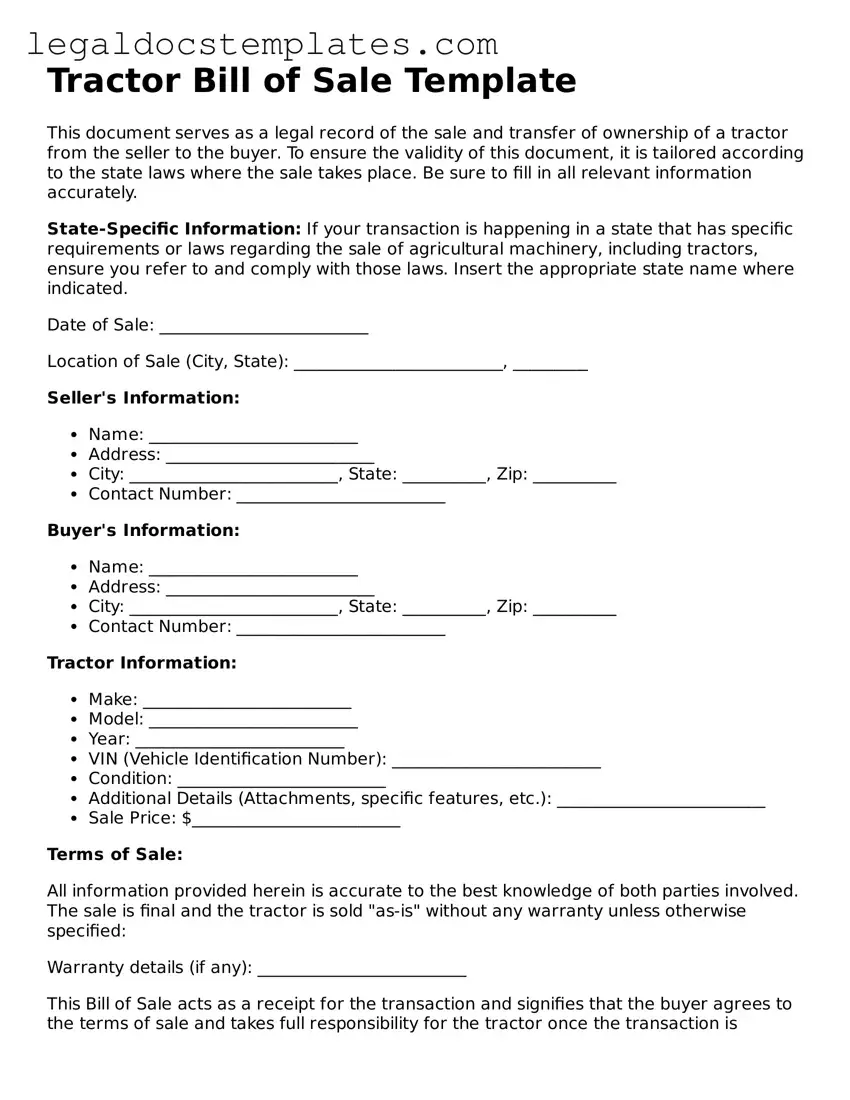Printable Tractor Bill of Sale Template
A Tractor Bill of Sale form is a legal document that records the sale of a tractor from a seller to a buyer, detailing the transaction's specifics such as the sale price, description of the tractor, and the parties' details. Providing proof of ownership transfer, this document is crucial not only for the buyer but also helpful for the seller to maintain a record of the sale. To seamlessly handle the change of ownership for your tractor, ensure you fill out the Tractor Bill of Sale form by clicking the button below.
Access Tractor Bill of Sale Now

Printable Tractor Bill of Sale Template
Access Tractor Bill of Sale Now

Access Tractor Bill of Sale Now
or
⇩ PDF Form
Don’t spend hours on this form
Complete Tractor Bill of Sale online in minutes, fully digital.